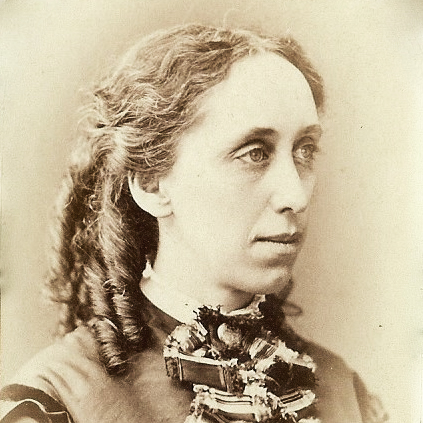“What do you think about a change of business?”
Maria Frost, August 30, 1865
Lavinia Goodell held a number of different jobs. She was rarely out of work for long and, like many young people who are trying to move up in the world, she was always on the lookout for fresh opportunities. Her family and friends also sometimes suggested positions that they thought might suit her.

In 1865, Lavinia’s father retired from his position as editor of the Principia, an anti-slavery newspaper in New York City, and he and his wife moved in with her sister’s family in Lebanon, Connecticut. For a short time the Principia continued under the leadership of the Goodells’ good friend J.W. Alden. Lavinia not only continued working at the paper, she also boarded with the Alden family. When Lavinia’s sister heard about this turn of events, she suggested that perhaps Lavinia might want to try her hand at teaching in Buffalo, New York or a nearby town:
If you could be in Buffalo, you would be very near us and could see us often. How would you like that? You want a place where you can have society. There seems to be a great many young ladies in this vicinity, but how intelligent they are I do not know.
Lavinia did decide to become a teacher, but in the home of a Brooklyn merchant. (Read about her experience here.) Lavinia’s sister was pleased to hear the news saying, “I am delighted with your situation. It is a responsible position” although “No doubt you will meet trials, as they are incident to every vocation and position in life.”
In the summer of 1866, Lavinia suffered from an unnamed illness and was forced to take a leave of absence from her teaching job. Her sister was concerned that teaching was too strenuous an occupation for her feeble sibling and enlisted help from family friend Esther Wattles to find Lavinia a less stressful job. Knowing of Lavinia’s background in publishing, Ms. Wattles wrote to the editor of a newspaper in Lafayette, Indiana to see if he might have a position open.

The editor, William S. Lingle, replied to Ms. Wattles:
I feel interested for Miss G. but at present I have no young ladies in my employ and the best situation I could give is that of proofreader at $30 per month.

Ms. Wattles sent the letter to Maria Frost, who in turn forwarded it to Lavinia and apologized for opening it:
Do not take it amiss that I opened this letter. You know that I am your true friend and deeply interested in your welfare.
There is no indication that Lavinia ever followed up Mr. Lingle’s job offer.
The following February, Maria inquired whether Lavinia had read an article titled “Room Higher Up” in the Independent, which was a weekly magazine founded to promote Congregationalism and was also an important voice in support of abolition and women’s suffrage. Henry Ward Beecher was the Independent’s editor for a time. Maria noted that “Room Higher Up” referred to occupations for women and indicated that proofreaders sometimes get higher salaries than teachers. Maria said, “I think you would like that.” Lavinia replied that she had applied for some proofreaders jobs and they did not in fact pay more than teaching.
Lavinia had evidently floated the possibility of going into some sort of business partnership with another woman because in the same letter Maria expressed skepticism about that proposition:
I do not know what to say about your plan for next year. I think it depends some upon the character of the Miss D. you mention. I should be very cautious about going into any kind of partnership. It might be a great advantage, or it might be the reverse.
Lavinia’s teaching career ended rather unceremoniously when her employer reneged on the salary he had promised her. (Read about that here.) In fairly short order Lavinia landed on her feet when she was hired to work at the fledgling magazine Harper’s Bazar. She remained employed at Harper’s, after having briefly considered going into the millinery business with a friend, until the fall of 1871 when she moved to Wisconsin and embarked upon her legal studies.
Sources consulted: Maria Frost’s letters to Lavinia Goodell (August 30, 1865; September 29, 1865; June 27, 1866; September 1866; February 25, 1867); Lavinia Goodell to Maria Frost (March 10, 1867); William S. Lingle letter to Esther Wattles (September 14, 1866)
The post “What do you think about a change of business?” appeared first on Lavinia Goodell.
